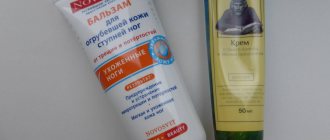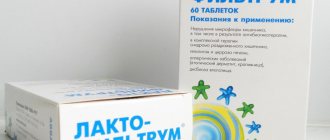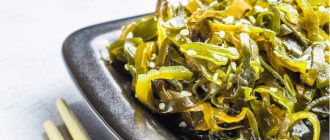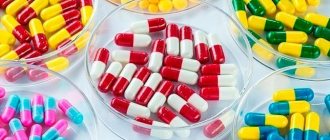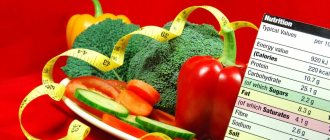Author
Victor Gennadievich Sturov , hemostasiologist, hematologist, doctor of the highest category, Doctor of Medical Sciences
According to statistics, vascular thrombosis affects 70% of people around the world. Every year, one in 250 people living on Earth dies from this disease - despite the huge number of drugs created to combat this terrible disease.
What is thrombosis
Many biological systems are responsible for the vital functions of our body. One of them is hemostasis. The task of hemostasis is to keep blood in a liquid state, stop bleeding if the walls of blood vessels have been damaged, and dissolve blood clots - blood clots that, like a patch, cover the damaged area of the vessel.
On the one hand, thrombosis protects us from blood loss. On the other hand, it can provoke serious diseases associated with impaired blood flow: stroke, myocardial infarction, ischemia of the abdominal organs and retroperitoneal space, gangrene of the extremities.
Until the mid-19th century, thrombosis remained a mystery to doctors. Rudolf Virchow, a German pathologist, managed to uncover it. He studied the mechanisms of thrombosis and identified three main causes:
- Deterioration of the condition of the walls of blood vessels (this may be the consequences of injuries and surgical interventions)
- Slow blood flow (blood clots accumulate where the speed of blood flow changes)
- Change in blood viscosity (“thick blood”)
Why is it so important to reduce blood viscosity?
The mechanism of development of this pathological process is quite simple. As blood viscosity increases, its movement through the vessels is disrupted.
Slow blood flow can lead to the development of atherosclerosis, varicose veins and hemorrhoids. In addition, too viscous blood can lead to the development of liver, kidney and heart failure. The most terrible and dangerous development of events may be pulmonary embolism, stroke and heart attack. These pathological conditions are caused by the formation of blood clots in vital vessels. Quite often, such conditions lead to the death of the patient, especially if assistance is not provided in the first hours. Often the cause of death is cardiac arrest or blockage of the pulmonary arteries.
what is important to consider about blood viscosity
Signs of varicose veins
With varicose veins, it is vital to monitor blood viscosity indicators. This is a key point in the treatment and prevention of the disease.
The main signs of varicose veins are:
- pain in the legs when walking, at rest;
- visual changes in the skin - hyperpigmentation, the appearance of vascular networks, bulging dilated veins;
- tired legs at the end of the day.
Ignoring the symptoms of varicose veins is fraught with serious consequences. The pathology often develops into phlebitis or thrombophlebitis. But to thin the blood in the early stages of the disease or for prevention purposes, it is not at all necessary to use expensive medications. There are a number of natural food products that successfully cope with this task.
What needs to be eaten in order for blood viscosity to be normal?
- Vitamins. It is very important that the body has enough vitamins A, C, E, B. It is these elements that allow you to normalize blood flow, the amount of lipids, and glucose in the blood. But there is another side to the coin. Excessive intake of vitamin C may cause an increase in blood viscosity. This is due to the fact that ascorbic acid reduces potassium in the blood, which leads to disruption of water-salt metabolism. There is an increase in urination, less fluid, and the blood becomes more viscous.
- Water-salt balance. It is also important that the body has enough minerals and salts. Last but not least is water balance.
- Amino acids. To normalize metabolism, it is necessary to consume amino acids. Taurine plays an important role in this process.
- Phytoncides. They have a great effect on the functioning of the intestines and maintain the correct balance in it.
- Cellulose. A huge amount of fiber is found in vegetables and fruits. It is important that they are fresh and not subject to heat treatment. It is fiber that promotes water retention in the body.
To lower blood viscosity , it is not always necessary to take medications. You can reduce it by changing your diet. Next, we will take a closer look at the list of products that can solve this problem without the use of medications.
To structure the article, we divided all these products into five main groups.
Fruits and vegetables
According to experts, it is fruits and vegetables that can optimize the functioning of the heart and blood vessels. The problem that people with high blood viscosity face is low vascular tone. The following list of products will help you cope with this:
- Lemons. Of course, along with lemons, other citrus fruits will have the same effect, because they also contain a lot of ascorbic acid and vitamin K. They normalize fat metabolism in the body and do not allow harmful fats to accumulate. And they, in turn, through the development of vascular atherosclerosis, can lead to the development of thrombosis. You should not drink pure lemon juice. After all, it has a rather aggressive effect on the gastrointestinal mucosa. Before use, you should dilute it in water. You can consume no more than 100 grams of lemon juice per day in diluted form.
- Pomegranate. Everyone knows that if heart pathology develops, you need to drink pomegranate juice. It also contains a lot of ascorbic acid, but that's not all. It contains vitamin P and B6 and a number of amino acids. They are able to optimize heart function, give normal tone to blood vessels and help lower blood pressure. Women over 50 should pay attention to this product. The pulp and zest contain a considerable amount of vitamin K. The variety of pomegranate dishes is amazing. Therefore, anyone will find a convenient form to receive this useful product.
- Ginger. It contains one of the largest amounts of vitamin B, which is important for the body. It is able to remain in the composition of ginger, despite drying, cooking and other thermal processes. It is also rich in selenium, zinc, copper, manganese and iron. It is these elements that help normalize the level of hemoglobin and red blood cells. Experts recommend drinking ginger tea in order to remove toxins and toxic substances from the body.
- Garlic. Rich in phytoncides, which are very important for blood vessels and the heart. But it also contains many different vitamins and selenium. These substances help reduce blood viscosity. Garlic plays an important role in liver detoxification.
- Beet. Due to its fibrous and high fiber content, it is able to retain water in the body. Don’t worry about these beneficial properties disappearing after cooking. In no case, on the contrary, fiber only activates its properties under the influence of temperature. In addition, beets have a pleasant sweet taste, so they are often used in salads, side dishes and even desserts.
what to eat to reduce blood viscosity
Berries
The berries contain a lot of amino acids and vitamin C. Their consumption leads to optimization of the breakdown of lipids by the liver. There are four main berries that can improve the functioning of blood vessels and the heart. These include:
- Kalina. It has many essential oils that promote normal functioning of the heart and immune system. But in this case, you should not resort to drying the berries. After all, only fresh viburnum contains these nutrients.
- Cranberry. Very rich in vitamins B, K and PP. They optimize the functioning of the human endocrine system. And if you consider that it is closely related to the immune system, it has a double effect on the body. These two most important systems in the human body will allow you to regulate metabolism and thereby avoid the development of metabolic processes in the body.
- Black currant. An invaluable bush in the countryside, because everything in it is useful: from berries to leaves. It contains a colossal amount of ascorbic acid, which is actively involved in lipid metabolism. To completely saturate your body with vitamin C, you need to eat only 30 berries a day. But that's not all. Thanks to the large number of useful microelements in the composition, namely copper and lead, muscles are strengthened. This leads to improved vascular tone.
- Mulberry. Perhaps it is the most useful of all the berries presented that can thin the blood. This is especially true for black mulberry, which contains a lot of phytoncides and essential oil.
berries that reduce blood viscosity
Drink
There are many studies that have shown the benefits of various herbs, teas and infusions to combat excessive blood viscosity, and in itself, drinking plenty of fluids and proper water balance can help a person with such a problem. The healthiest drinks include:
- Green tea. It is famous for its high amount of antioxidants. This is necessary to oxidize cells and reduce the risk of thrombosis and lysis of red blood cells. And the mood after green tea will be much better, because it contains substances that stimulate the production of the hormone of happiness.
- Cocoa. To the delight of lovers of chocolate and other cocoa products, it is recognized that daily consumption of 30 grams of cocoa will have a beneficial effect on the condition of the heart and blood vessels. This happens because cocoa actively helps absorb carbohydrates and lipids.
- Fresh and natural juice. To make it as healthy as possible, you need to leave a lot of pulp in the juice. After all, it contains a lot of fiber, vitamin B and C. As for the choice of juice, it is best to take apple, apricot, pomegranate juice. It is worth considering the fact that the content of nutrients in canned juice is much less than in fresh juice.
fresh juices with pulp to reduce blood viscosity
In addition to the above products, there are others that also have a beneficial effect on reducing blood viscosity. Their mechanism of action is that they reduce blood alkalinity, which leads to the prevention of thrombosis. These include:
- Seeds and nuts. They contain a large amount of essential oils and resins. These substances activate the normal metabolism of proteins, fats and carbohydrates. But not all nuts are healthy, especially when it comes to peanuts. After all, it contains a lot of complex fats and proteins. But pistachios and walnuts are 100% healthy. They are high in omega fats. As for seeds, it is useful to eat poppy seeds, dill, sunflowers and peppers.
- Dried fruits. It would seem that fresh berries and fruits are considered to be the healthiest. But it is worth considering the fact that when properly dried, the berries retain a lot of fructose and fiber. Despite these beneficial properties, you should not eat too much of them. This is because excessive consumption of dried fruits can lead to the development of hypervitaminosis C and increased blood sugar levels. The maximum daily dose of dried fruits should be two tablespoons.
- Porridge. But not all of it. It is mainly worth consuming cereals based on cereals, namely buckwheat, oats and wheat. But you should not overuse rice, because it contains a lot of starch. Of course, taking into account the above information, porridge with dried fruits will be a real combo in terms of usefulness. This combination normalizes the functioning of the gastrointestinal tract and fills the body with the necessary vitamins and microelements.
- Omega 3 and 6 fatty acids. These acids are abundant in fatty fish, oils and nuts. This is a great way to improve the performance of brain cells by improving the condition of cell membranes. This avoids the development of erythrocyte lysis and thrombosis. A cost-effective option for obtaining omega acids is to consume fish oil.
- Linseed oil. This is a great choice for vegans who don't eat fish. It is worth considering the fact that it should be consumed exclusively in its raw form. When frying, all the beneficial substances disappear.
- Honey. It is very important to eat at least a small amount of bee products. After all, they contain many useful trace elements, metals and salts. Regarding carbohydrates, in honey they are represented by a small amount of fructose. Propolis contains a lot of phytoncides and oils, which have a positive effect on the immune system. Therefore, it is not in vain that everyone always drinks tea with honey when suffering from respiratory diseases.
- Spices, including turmeric. Turmeric contains an antioxidant that allows the blood to be better saturated with oxygen and maintains the heart in normal tone. The same effect is found in saffron, basil, thyme, etc.
- Apple cider vinegar. It has a huge range of organic-based acids. They can lead to optimization of the gastrointestinal tract and break down lipids. Grape vinegar affects the body in the same way, but you should be careful with it, because it contains more alkali, and this can be very harmful to a person with gastrointestinal pathology.
- Soda. Can increase the alkalinity of blood plasma. This helps thin the blood and prevent the formation of blood clots. Despite such a good effect of soda on the body and blood condition, you should not abuse it. This is because it contains a lot of sodium, which has a toxic effect on the nervous system.
- Ginkgo biloba. This is a universal activator of the cardiovascular system. It is able to normalize blood pressure. But you don’t need to drink a lot of ginkgo biloba, because it can cause energy deficiency. You should consume no more than 15 grams.
- Artichoke. Able to normalize the balance of water and electrolytes. In addition, it contains a huge amount of vitamin K, which is simply necessary for normal heart function. It is worth noting another advantage of the artichoke, because all the beneficial substances in it can be preserved even during heat treatment and preservation.
- Kalanchoe. It contains a lot of resinous essential oils, which give it a viscosity and sticky consistency. This plant is often used in folk medicine to treat heart pathologies, optimize vascular tone and reduce the amount of toxins in the body.
nuts for blood thinning
You need to be very careful when consuming Kalanchoe and aloe, because they are strong allergens. A test should be carried out before any use of these substances. That is, apply a small amount of the plant and monitor the absence of pathological reactions.
Contraindications
There are few cases of bans or at least restrictions on the use of lemon. Yes, and they are mainly regarded as preventive.
- Children under 3 years of age. In infancy, the child’s digestive system is only in its infancy, so it is advisable to abstain from this valuable product until the age of 3.
- Individual intolerance. It is considered to be the most hypoallergenic of citrus fruits. But cases of allergies can never be completely ruled out.
- Acute pancreatitis, gastritis and other diseases of the digestive tract, especially during exacerbation. With a gentle diet, it is better not to use lemon juice.
- Weak tooth enamel. Even with good teeth, it is advisable to rinse your mouth after contact with citric acid. If eating the fruit causes discomfort in the mouth, then you need to contact your dentist with a complaint about weak tooth enamel.
What foods should you exclude from your diet?
It is necessary not only to saturate your diet with healthy foods, but also to get rid of harmful foods. Of course, there are a number of foods that cannot be excluded, but you can minimize their consumption. These products include:
- Milk and dairy products. Milk contains casein, which, under the action of an enzyme, leads to their breakdown. This is a long process that is quite energy-consuming. In addition, during breakdown, a lot of fructose is formed, and this is what helps increase blood viscosity.
- Alcohol. The body perceives alcohol as poison. To remove this poison from the body, you need to spend a large amount of liquid. This is what leads to the fact that the next day after severe alcohol intoxication, severe thirst may develop. This effect of alcohol on the body leads to increased blood viscosity. Moreover, this phenomenon is observed even when drinking alcohol in small quantities. Another thing is red wine, drinking it is even healthy.
- Animal fat. Pork, sausage and beef in themselves are not harmful to the body. But with excessive consumption, fat deposition under the skin and in the blood vessels can develop. Atherosclerosis leads to blood thickening due to impaired blood flow through the vessels. In advanced cases, this leads to the development of liver and kidney failure. Of course, you cannot completely eliminate such food, but everything should be in moderation.
- Potato. Besides potatoes, you should be careful with rice. These foods contain a lot of starch, which turns into carbohydrates and leads to an increase in blood sugar. Due to this, blood viscosity increases.
- Bananas. Bananas contain a huge amount of carbohydrates. You should not eat more than two bananas a day. As for children, it will be too much for them. Athletes can afford a little more bananas in protein shakes.
what to eat to reduce blood viscosity
I can't bring myself to drink water. What to do?
If you think that you are not used to drinking plain water, then you automatically agree to get sick. Soup, tea, compote, kefir, herbal infusion, juice, beer, etc. liquids are not water in the sense required for health.
Most of them do not fit the definition of “water” because they contain a large percentage of additional substances: fiber, sugar, fats, proteins, etc.
And coffee, tea, beer, in addition to the presence of dry residue in them, also remove water from the body. Herbal infusions can only be taken as directed, as they are medicinal products. Even simple mint cannot be drunk day after day for months instead of pure water.
Therefore, 4 glasses of water a day, this is clean water from a filter or, in extreme cases, from a bottle, but God forbid it is not boiled or carbonated, and especially not mineral.
conclusions
Quite often, increased blood viscosity is a result of poor nutrition. Therefore, you should be attentive to your diet and adjust it as necessary. Sometimes, simple dietary restrictions can protect a person from stroke, heart attack and other serious pathologies.
It is best to contact a specialist who will assess the person’s condition and help create a nutrition plan.
But the cause of increased blood viscosity is not always a food problem. It is often one of the pathological mechanisms of complex diseases such as diabetes or other metabolic disorders. In this case, contacting a nutritionist is not enough; you need to make an appointment with an endocrinologist. Only he will be able to correctly assess the situation and adjust the treatment.
Symptoms of thrombosis
There are two main forms of venous thrombosis: deep vein thrombosis (DVT) and superficial vein thrombosis (thrombophlebitis). The first form is the most dangerous and may be asymptomatic at the onset of the disease.
Symptoms of thrombosis of the superficial veins of the lower extremities
- heaviness in the legs
- pain along the thrombosed veins, limitation of movements
- swelling of a nearby limb
- redness of the skin along the hardened vein
- increased skin sensitivity
- deterioration in general health: weakness, malaise, chills, increased body temperature
Symptoms of deep vein thrombosis
- feeling of fullness and heaviness in the limb
- pain on the inside of the foot, leg, thigh
- swelling of the entire limb or part of it
- the skin of the affected leg becomes pale and bluish in places
- the temperature of the affected limb is 1.5-2ºС higher than that of the healthy one
- bursting pain in a limb
If you experience any symptoms of thrombosis, consult your doctor immediately. Prevention of thrombosis Prevention of thrombosis is a whole series of measures that are aimed at improving the rheological properties of blood (blood and plasma viscosity), preventing heart and vascular diseases, strengthening blood vessels, normalizing blood flow, etc.
To avoid blood clots, you need:
- Adhere to a special diet that prevents the formation of blood clots.
- Give up bad habits and spend more time in the fresh air: fight physical inactivity, give yourself adequate physical activity.
- Strengthen the immune system, thereby preventing the development of infectious processes.
- Wear compression socks and special stockings made of jersey.
- Properly organize your daily routine, carefully plan long trips by plane or car, when you have to spend many hours in a sitting position.
- Do not wear outerwear, underwear and accessories that cause discomfort and put pressure on certain parts of the body (for example, tight jeans, belts, corsets, uncomfortable shoes).
- Avoid general hypothermia. Do not walk in too hot weather, try not to take hot baths.
- Contact your doctor to prescribe medications to prevent thrombosis. Attention: medications cannot be taken without agreeing on the dosage with a specialist.
Apple vinegar
Many consider this product an indispensable aid for maintaining health, systematically using it according to a proven scheme. We can say for sure that apple cider vinegar is hard to harm the body. Therefore, its use can be considered a relatively safe activity. Many of its positive effects on the body have been recorded, one of which is a decrease in blood viscosity.
The mechanism of this action can be explained by its slightly acidic reaction caused by natural beneficial components. Their entry into the body helps eliminate toxic acidic compounds, which are replaced by the active components of apple cider vinegar. At the same time, metabolic acidosis in the blood is eliminated, which helps it acquire more liquid properties compared to the initial level. Naturally, to achieve such an effect, it is necessary to systematically take the substance, which can easily replace the daily use of tablets with the same effect.
Proper intake of apple cider vinegar should be done in the morning. This is a very important condition, since at this time the body is most capable of discharging oxidized products. The recipe for preparing an aqueous solution consists of a glass of warm water and two teaspoons of apple cider vinegar. A single daily dose is sufficient. The duration of the course is from 2-3 months to a year with 10-15 day breaks every 2 months. The only contraindication is gastroduodenitis, peptic ulcer with increased stomach acidity.
More details:
The benefits and harms of apple cider vinegar and its treatment
Cayenne pepper
The fiery seasoning contains salicylates, a natural blood thinning agent valued for its pronounced antithrombotic effect. “In addition, cayenne pepper contains capsaicin, a substance that has been shown in several studies to have lipid-lowering, antihypertensive, and antidiabetic properties,” says Cristina Ruggieri. - It is also useful for obesity. Cayenne pepper is often taken in capsule form for cardiovascular health and stimulating circulation.”
Aegitromb
“Egithromb” is usually used to prevent complications from heart attack, stroke, arterial occlusive disease, acute coronary syndrome, angina pectoris and atrial fibrillation. The active ingredient of the drug is clopidogrel hydrosulfate. The drug binds perfectly to plasma proteins (94-98%). The therapeutic effect occurs within two hours after taking Egithromb. After 4-7 days of taking the drug, blood density indicators return to normal. The doctor may prescribe a blood thinner, depending on the severity of the disease, from several days to six months. The price of “Egitromba” is about 883 rubles for 28 tablets.
Aegitromb
Egis, Hungary
- prevention of atherothrombotic complications in adult patients with myocardial infarction (with a duration of several days to 35 days), ischemic stroke (with a duration of 7 days to 6 months) or occlusive peripheral artery disease;
— prevention of atherothrombotic complications in adult patients with acute coronary syndrome with ST segment elevation with the possibility of thrombolytic therapy (in combination with acetylsalicylic acid); - prevention of atherothrombotic complications in adult patients with acute coronary syndrome without ST segment elevation (unstable angina, myocardial infarction without Q wave), incl. in patients undergoing stenting (in combination with acetylsalicylic acid); - prevention of atherothrombotic and thromboembolic complications, including stroke, in atrial fibrillation in adult patients who have at least one risk factor for the development of vascular complications, who cannot take indirect anticoagulants and have a low risk of developing from 842
965
- Like
- Write a review
Turmeric
This popular spice acts as a natural anticoagulant and has antiplatelet properties. The study, published in the journal BMB Reports, found that curcumin, a beneficial polyphenol found in turmeric, inhibits thrombin. This enzyme plays an important role in the blood coagulation system. Researchers have concluded that regular consumption of curry, a famous oriental seasoning based on turmeric, can help prevent the development of thrombosis.

